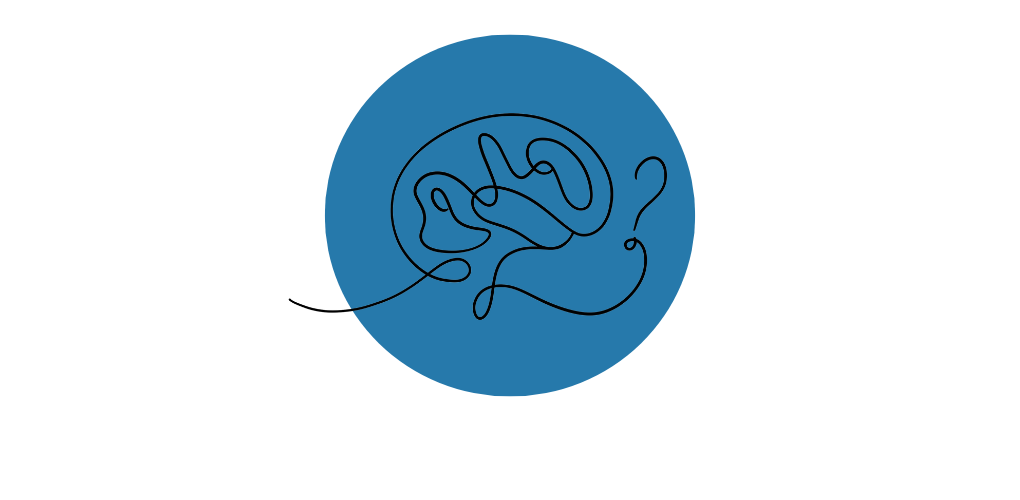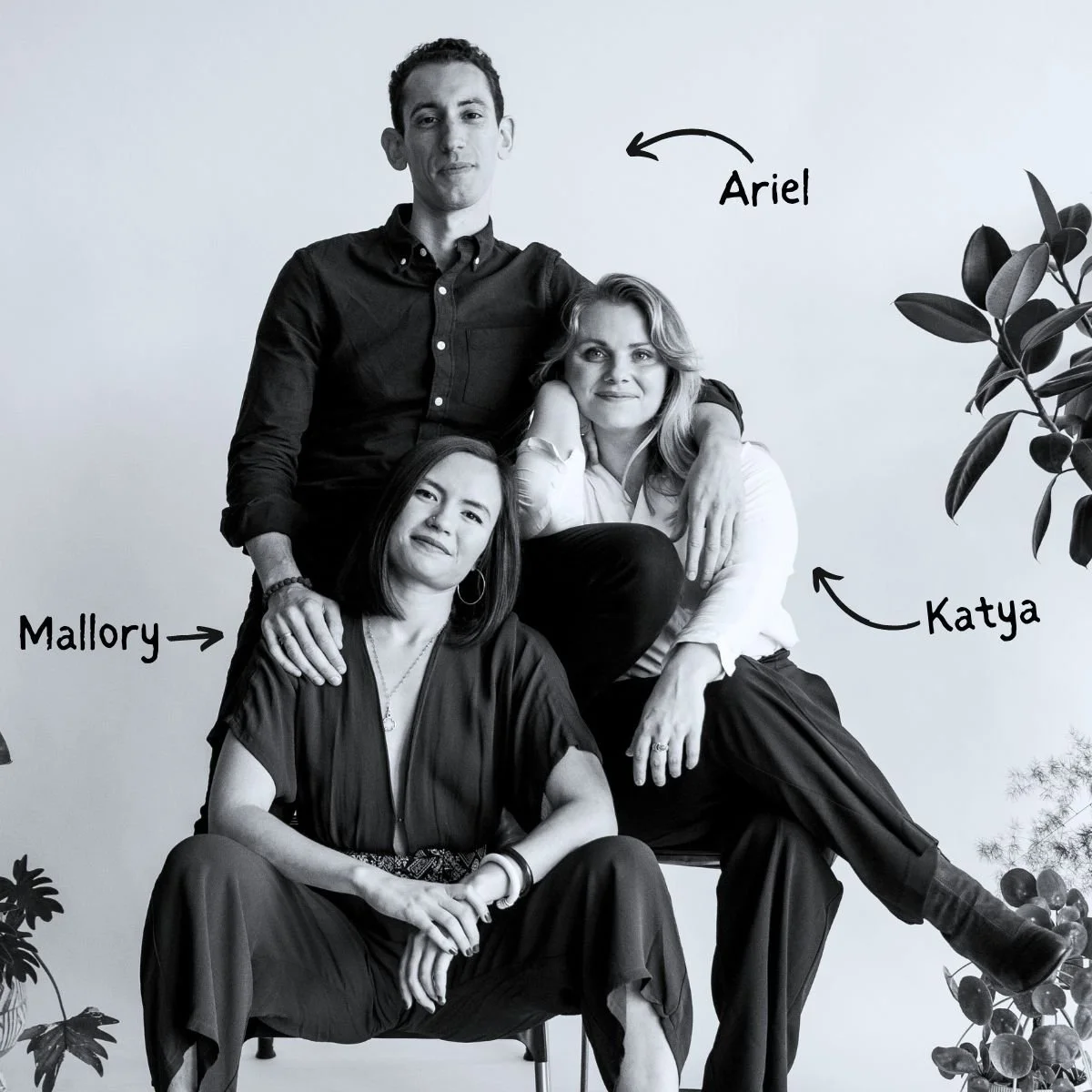Unpack Your Inheritance
ABOUT THE PROGRAM & Frequently Asked Questions
With gratitude, Katya, Mallory & Ariel (Inheritance Project Co-Founders)
Hi there. We are honored and excited that you’ll be joining us to Unpack Your Inheritance. We’ve facilitated this program for over 2,000 people from a range of backgrounds in the last few years and have been truly moved by each of the conversations we’ve had the privilege of guiding.
We’ve laughed, we’ve cried; we’ve watched friendships blossom and difficult topics come to the surface to be addressed. While the structure of the program is tried and true, each group of humans is unique and has a unique set of needs.
If you have a specific need or further questions about the experience that isn’t answered on this page, feel free to reach out to your Inheritance Project facilitator directly.
We thank you for your openness to embark on this journey and your commitment to taking care of yourself and your community. We look forward to getting to know you better!
Why inheritance?
A new definition of inheritance (noun): the ancestry, culture, beliefs, values, social conditions, stories, traits, and perspectives received from past generations.
Every individual has a unique inheritance, identity, and set of lived experiences. All of these weave together to shape the way we work, connect and lead. This program will offer you an in-depth opportunity to reflect on how your inheritance has shaped your professional journey. By becoming more aware of your own inheritance, you will begin to understand others on a deeper level and develop your ability to lead with empathy, build trust within any group, and collaborate more effectively with people of all different identities, life experiences, and learning styles.
What is the purpose of this program?
The purpose of the program is to create an opportunity for self-reflection, to build self-awareness, and practice deep listening. You will also learn practical tools you can use to create more effective and inclusive meetings and working environments.
What WILL I RECEIVE IN THis program?
Greater confidence to engage in conversations about diversity, inclusion, and identity at work
A deeper understanding of yourself and how your identity shapes how you lead, think, and communicate
An opportunity to connect with your co-workers and practice one of the most essential leadership skills: deep listening
Five practical inclusive leadership tools to help you lead more effective and inclusive meetings
What is the time commitment?
The 4-week program includes:
Two live Zoom sessions of 2hrs and 1hr each - attendance at both sessions is required for participation
Weekly individual assignments of approx. 20min - 60min per week
The week before your first live Zoom session will have the most substantial prework, including individual reflection exercises about your inheritance, identity, and leadership style.
You will also be connected to a “pod” or small group of 3-4 others, and given opportunities to share insights and engage in dialogue together throughout the course of the program.
WhAT ARE THE program AGREEMENTS?
Agreements create a shared language and agreed-on boundaries for a group, so everyone is on the same page about what to expect and how to show up. The Program Agreements will be shared at our first live session. You will have the chance to ask any questions about them before being invited to consent.
Our agreements for this program are:
Embrace your growth edge
The most profound learning often happens at our “growth edge”, that sticky space just outside our comfort zone. During the program, you are encouraged to step into your “growth edge” to the extent that feels safe and right to you.
One speaker, one mic, one conversation
Give each speaker our full presence and undivided attention.
Turn assumptions into questions
Assumptions and stories are naturally created by our minds as a survival response. In this session, you are invited to notice the assumptions you make and turn them into questions, so that you can lead with curiosity and examine what you think you know.
Use “I” statements
You agree to speak from your lived experience, rather than sharing generalizations or political opinions.
What’s shared here stays here, what’s learned here leaves here
Our sessions are confidential, and each person agrees to maintain confidentiality to protect what is shared.
Finally, we encourage you to remain on video for our live virtual sessions. Body language accounts for 55% of our communication. Your smiles, nods of encouragement, and other gestures are important cues to show your fellow participants that you are present and listening deeply. However, we understand that life happens, and if you need to be off-video to take care of yourself or a specific need, of course, you can do so. We just ask that you communicate that to the group in the chat.
Who is inheritance project?
We are storytellers, educators, and facilitators, who value experiential learning, human connection, and deep listening. We work with teams large and small to help re-imagine their role in society and become leaders of an inclusive and collaborative future.
Inheritance Project was originally envisioned by Katya Stepanov, a Belarusian-Jewish-American facilitator, writer, director, actor, and immersive experience designer, who created an immersive theatre experience to unpack her own inheritance.
Learn more about our founding team here.
Frequently Asked Questions
-
No. The sessions are designed to be a “choose your own adventure” format, based on a framework proposed by NYU sociologist Kwame Appiah, called the 5Cs of Identity. You can decide which of the 5Cs of Identity (Country, Culture, Class, Creed, Color) to reflect on during the session and choose what information to share based on your comfort level.
While for some of us, these reflections and conversations can feel supportive or liberating, for others opening up in this way at work can feel risky, especially for those from more marginalized groups. For many of you, it will be a bit of both, depending on your intersectional identity, your role and level in the organization’s hierarchy, the nature of your relationships with your manager and colleagues, and many other factors. These sessions are designed to offer you the choice of what feels right to contribute based on your unique context.
All exercises and prompts in the sessions are voluntary or "opt-in" in that you can share as deeply (or not) as you desire. We commit to creating an environment that honors each person’s boundaries. No one is ever forced or pressured to disclose any personal information in the workshop or do anything against their will. -
Inheritance Project is a team of multi-cultural facilitators with over 62,000+ hours of facilitation experience. Our facilitators have backgrounds in education and curriculum design, theatre, mindfulness, somatic practices, leadership coaching, executive strategy, and experience design. Each of our facilitators has a unique inheritance, personal history, and set of professional experiences.
The role of the facilitator is not to educate, but rather to be an intuitive guide of the experience. Our sessions are not academic lectures, they are designed to be experiential and immersive. The facilitator is responsible for caring for the needs of the group and ensuring that the Program Agreements are honored by all participants.
Your facilitator is here to support your journey through the program and care for your unique needs. If you have any questions or concerns about the program, you are welcome to reach out to your facilitator directly.
-
The purpose of the Pre-Session Reflection Workbook is four-fold:
To deepen your self-awareness, gain a greater understanding of your own inheritance and identity, and prepare for the topics we will cover during the program
To help your facilitator learn more about you so they can tailor the content of the program and facilitation approach to the perspectives and needs of your group
To collect data about your experience working at your organization, to help your leaders improve your workplace culture. If this is included as part of your team’s program, only information related to your team and organizational culture will be shared. Any data shared with your team’s leaders is anonymized and aggregated. We never share any personally identifiable information or personal reflections about the 5Cs of Identity with your employer.
To deepen Inheritance Project's understanding of the way people relate to inheritance and identity, which will help us improve our work and create programs that are meaningful to humans from all identities and backgrounds.
The Workbook is focused on a framework proposed by NYU sociologist Kwame Appiah, called the 5Cs of Identity: Country, Culture, Creed, Color, and Class. Investigating these topics is l deeply personal, which is why we’ve committed to the highest standards of integrity in data privacy and security. Learn more by reading our full Data Privacy Commitment.
-
Your facilitator will read the workbook responses prior to the live group sessions to tailor the content of the program and facilitation approach to the perspectives and needs of your group.
The Inheritance Project team may also review your responses as part of our research into inheritance and identity. What you share will help us to continue to improve our work and create programs that are meaningful to humans from all identities and backgrounds.
If you are participating in a workshop as part of a program with your employer, your employer may receive a data report with anonymous and aggregated information, only to questions related to organizational culture. We ensure that your responses cannot be connected to you or your name by your employer. Your personal reflections on your inheritance and identity will not be shared with your employer or anyone else.
We do not sell or share personally identifiable information collected in our workbooks with anyone, unless we have asked for your express permission or it is mandated by law.
Learn more by reading our full Data Privacy Commitment.
-
Feeling uncomfortable is an important part of growth and may be a signal that we are approaching our “growth edge”. When we step into our “growth edge'“, we give ourselves the opportunity to learn new things about ourselves and others. If you are feeling uncomfortable around the topics of inheritance and identity, then this may be a powerful opportunity for you to learn. You can reflect on:
What is the root cause of this feeling of discomfort?
How safe does it feel for you to lean into your growth edge?
Each of you will have a different set of needs and requirements to feel safe stepping into your growth edge, depending on your intersectional identity, your role and level in the organization’s hierarchy, the nature of your relationships with your manager and colleagues, and many other factors. For some, the feeling of discomfort is a valid indication of a lack of safety to proceed, especially for those from more marginalized groups and experiences. You are invited to investigate these feelings for yourself and determine how to participate (or not) based on what you discover.
-
Meaningful change requires commitment. This program provides you with our top 5 actionable tools to practice inclusive leadership and suggestions for how to use them in your daily workflow. It is up to you and your team to put these tools into action in your life and workplace. We encourage you to continue to invest time and energy in practicing self-inquiry and curiosity, in addition to incorporating these inclusive leadership tools into your professional practice.
After the program finishes, your leadership will be invited to a strategic debrief to align on next steps for your organization based on the anonymized, aggregated, data collected in the pre- and post-program workbooks. After the program, you can expect to hear more directly from your organization’s leaders.
For further suggestions tailored to your organization’s context, feel free to connect with your Inheritance Project facilitator directly.

